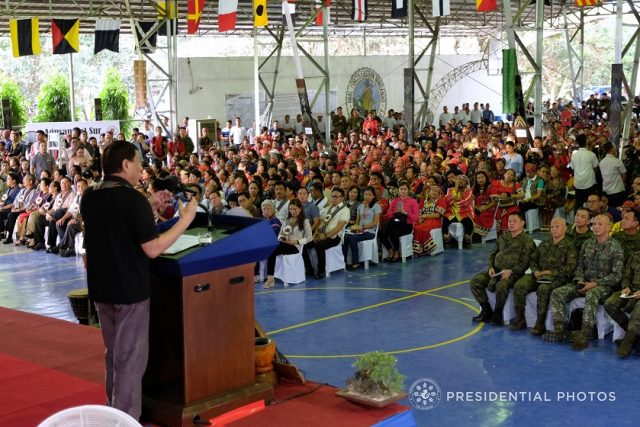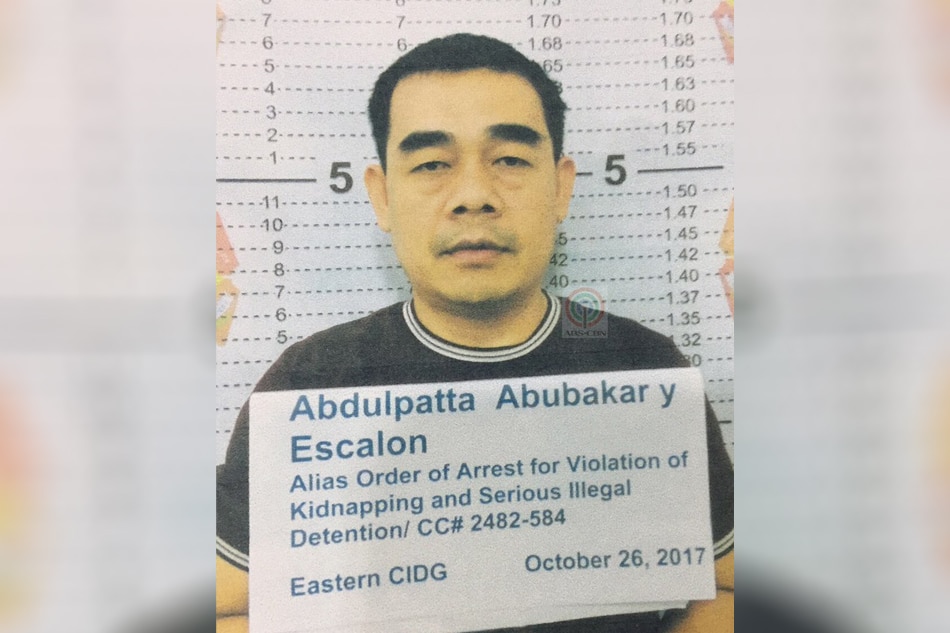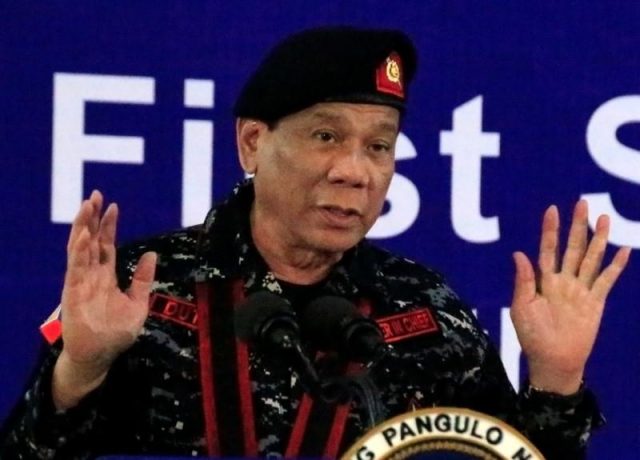From The Straits Times (Feb 10):
Shifting sands of terrorism in South-east Asia (By Joseph Chinyong Liow)
From Bali to Marawi, the menace posed by militants remains even if the players and methods continue to evolve
In October 2002, bombings on the Indonesian resort island of Bali catapulted terrorism to the top of the list of security priorities for the governments of maritime South-east Asia, and there it has remained.
In the ensuing years, security agencies across the region were seized with the transnational and cross-regional dimensions of this threat. There was good reason for this. Investigation into the Bali bombings uncovered links to the notorious international terrorist group Al-Qaeda.
It also emerged that Jemaah Islamiah (JI), the regional terror group, was attempting to create a Daulah Islamiah, a regional Islamic state, in maritime South-east Asia by means of violence. While its vision failed to materialise, South-east Asian militants have persisted in their pursuit of cross-regional cooperation.
In point of fact, this pursuit has precedents that predate Bali or Daulah Islamiah. It was incubated in the Afghanistan-Pakistan border between 1985 and 2000, when South-east Asian militants crossed paths with each other and also with foreign fighters from other parts of the world while training alongside mujahideen fighters then waging jihad against Soviet occupation of Afghanistan. It was during this time that bonds were built among the South-east Asians who would go on to form the backbone of JI.
Yet while JI did possess a regional footprint by dint of active cells in Indonesia, Malaysia, the Philippines and Singapore, the establishment of an operational cross-regional network proved a difficult proposition for reasons of geography, culture, language and divergent strategic objectives. That much was evident from conflicts such as in Ambon (1999-2005) and Poso (1998-2007), where coordination proved elusive despite the presence of a range of militant groups, most of whom preferred to wage their own "jihad" independent of each other.
Even at the height of Al-Qaeda's interests in South-east Asia, the international terrorist group's priorities were focused on the region more as a base for operational planning and the movement of funds than a key theatre for operations of a cross-regional nature.
THE SYRIAN CATALYST
It is against this backdrop that the outbreak of conflict in Syria in 2011 catalysed a new cycle of terrorist and militant activity in South-east Asia and raised fresh concerns over the prospects for cross-regional cooperation between militant groups.
At the forefront this time stood ISIS, the Islamic State in Iraq and Syria. The fact that at the peak of its powers ISIS started to notice South-east Asia was evident not only from regular coverage of the region in ISIS media such as its Amaq news agency and its English-medium publication, Dabiq, but also in its introduction of Malay-language propaganda, clearly tailored for a regional audience, and its creation in September 2014 of Katibah Nusantara, the South-east Asian fighting unit operating under its umbrella.
Indeed, Katibah Nusantara was an effort by the central administration of ISIS to bring together Malay-and Indonesian-speaking fighters to overcome the language barrier that impeded effective tactical deployment of South-east Asians (most of the Indonesians couldn't speak Arabic or English, while the Malaysians fared slightly better in English but couldn't speak Arabic).
Yet the existence of this South-east Asian unit belied differences that prevailed between the Malaysians and Indonesians in its ranks. Indonesians were dismissive of their Malaysian counterparts based on the perception that their religious knowledge was inferior. Concomitantly, Malaysians were relegated to menial roles in the Indonesian-led Katibah Nusantara. This explains the reluctance on the part of Malaysians to even join Katibah Nusantara in the initial stages of its formation, preferring instead to fight with other militant groups operating in Syria and Iraq (Malaysians did join eventually). In fact, even the Indonesians within Katibah Nusantara could not quite get along: one faction under Abu Jandal eventually split to form Katibah Masyaariq.
Notwithstanding the bickering that beset ISIS' South-east Asian fighters, the reality remains that by virtue of being in a distant land engaged in the selfsame conflict, they were bonded together, however imperfectly. Because of this, the matter of whether these ties will be transplanted back into South-east Asia as some battle-hardened militants return with new skills, renewed ideological commitment, and established international connections is a valid concern that needs to be treated seriously.
Indeed, this was precisely the scenario that Afghanistan presented two decades ago, and it certainly doesn't take too many hardened returnees to create problems.
THE AFGHANISTAN ANALOGY
Researchers at the respected Jakarta-based Institute for Policy Analysis of Conflict estimate that among Indonesians who returned from foreign conflict zones in the last two decades or so prior to ISIS coming into existence, 42 were veterans of the Afghanistan conflict, 50 were alumni of the Moro struggle in the southern Philippines, and three had fought in Kashmir with the Pakistani group, Lashkar-e-Taiba.
Of the three conflicts, Afghanistan stands out for the fact that, unlike the southern Philippines, which was mostly regional in scope , it was in Afghanistan that South-east Asians came to be acquainted with - and exposed to - not only each other but foreign fighters from all over the world. But we should also consider differences inherent in the Afghanistan-Syria comparison that bear on our assessment of the utility of the Afghan analogy.
First, for Indonesian fighters in Afghanistan, the largest group in the South-east Asian contingent by far, their main objective was not the liberation of Afghanistan from Soviet occupation but preparation for armed struggle back in Indonesia against the Suharto government upon their return.
Most South-east Asian fighters who left for Syria, on the other hand, did so with no intention of returning, although some may well be compelled to after ISIS is eventually vanquished, or perhaps under instruction from ISIS. (The latter scenario would be a cause for much concern.)
Second, South-east Asians in Afghanistan comprised able-bodied males who went alone, whereas a sizeable number of women and children went to Syria with their husbands and fathers to live in the self-styled Islamic state.
Finally, while South-east Asian fighters were funded to go to Afghanistan, many of those who went to Syria, especially in the initial stages, had to raise their own funds. Having liquidated property and cashed out bank accounts to make the trip, not many will be able to afford the return cost on their own.
Afghanistan and Syria invite further comparisons in terms of the motivations behind the decisions of South-east Asians to travel afield. Not all who went to the Middle East went to join ISIS, or for that matter, even to fight. Some joined anti-ISIS militant groups like Ajnad al-Sham, while others went on humanitarian missions, or were simply corralled into going to Syria by their families.
Moreover, while some were doubtless drawn by the desire to live in an "authentic" Islamic state, this does not automatically mean they were prepared to fight for it (not by choice anyway). All this is to say the regional authorities should take care not to paint all returnees with the same broad brushstroke.
CHANGING NATURE OF MILITANCY
The audacious five-month siege of Marawi, the most recent high-profile conflict in the region, suggests that Islamist militancy in South-east Asia is evolving on a number of counts.
First, there has been a discernible shift in militant tactics. Motivated by a desire to prove their credentials to ISIS, which continued to withhold formal recognition of southern Philippines as a "wilayah" (province), Marawi marked the first attempt at seizing and holding urban territory by pro-ISIS militants in South-east Asia. It is not likely to be the last.
Second, recruitment patterns and profiles have changed. Barely a decade ago, militancy in the region mostly revolved around a network of radical groups. While these groups remain active today, a pattern has emerged that sees a new generation of recruits, many educated and from middle-class backgrounds, being drawn to the ideas of a radical transformation of society through the puritanical implementation of Islamic law, yet who do not have any prior affiliation to the known radical groups. In other words, many of these new recruits have been radicalised less via connections to known groups than by exposure through the Internet.
This leads us to the third change: Technology is featuring more prominently. The use of digital and social media as a means of encrypted communication, recruitment and propaganda has been both rampant and crucial. Through platforms such as Facebook, Twitter, Instagram, WhatsApp and Telegram, militants have managed to capture the imagination and augment the pool of sympathisers and potential recruits.
In prisons, extremist preachers who sow the ideological seeds that militancy reaps continue to enjoy access to their followers via smartphones. Technology has not only been leveraged for the purposes of communication and propaganda. During the Marawi siege, militants used commercially acquired quadcopter drones for surveillance, and advanced heavy firearms to hold off Philippine military units.
The fact that digital media technology enables the creation of a sense of belonging that transcends geography circles us back to the important point about cross-regional cooperation and networks. Marawi is also noteworthy for the fact that it was a devastating example of cooperation on a considerable scale. Evidently the brainchild of the Maute group led by brothers Omarkhayyam and Abdullah, Marawi nevertheless involved other Philippine groups such as Isnilon Hapilon's Basilan faction of the Abu Sayyaf, as well as Malaysians and Indonesians.
The Philippine authorities also reported the presence of fighters from Saudi Arabia, Chechnya, Yemen and Singapore in Marawi, all of whom worked together under an apparent central command. The Malaysian, Mahmud Ahmad, a fund raiser for the Marawi operation, reportedly played an instrumental role in bringing South-east Asia's pro-ISIS groups together in the conflict. Whether this is a harbinger of things to come remains to be seen. But there is already evidence of chatter among South-east Asian militants exhorting unity like that which was in evidence in Marawi.
Indeed the reality is that South-east Asian militants will continue to attempt cross-regional cooperation, notwithstanding the proven difficulties this entails. For this reason alone, regional governments should hasten efforts to widen and deepen their own cooperation.
Indeed, the siege of Marawi may be over and ISIS in its death throes, but only the most foolhardy would dare say the same about the problem of terrorism and militancy in South-east Asia.
[The writer is dean and professor of comparative and international politics at the S. Rajaratnam School of International Studies, Nanyang Technological University.]
http://www.straitstimes.com/opinion/shifting-sands-of-terrorism-in-south-east-asia















